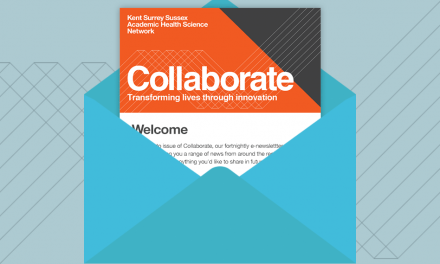We’ve launched a ‘call to action’ to contribute to changing how we care for people with frailty, and to delay or prevent its onset. The aim of the call is to determine how we could better support our region through delivering new approaches, support partners with their existing projects, or to find additional solutions for existing approaches.
People are now living far longer, but extra years of life are not always spent in good health. They are more likely to live with multiple long-term conditions, or live into old age with frailty or dementia, so that on average older men now spend 2.4 years and women spend 3 years with ‘substantial’ care needs.
We are looking for innovations to contribute to changing how we care for those with frailty, as well as looking upstream to how we can prevent or delay people becoming frail.
Overview
In a recent report exploring research and innovation needs in Kent, Surrey and Sussex, the majority of stakeholders from the KSS AHSN region prioritised frailty as a top three medical treatment area to target with future innovation and research.
In the region, frailty was mentioned predominantly in relation to preventing falls, healthy behaviours and self-care to prevent progression to frailty, independent living, and choices around end of life care, with the quality of life of the patient in mind.
“Fundamentally, getting people exercising, consuming a good diet, and stopping smoking will delay progression to frailty, disability and dementia. What are the preventative strategies that need to be in place in order to delay progression?” – Director of Public Health in KSS
The NHS Long Term Plan recognises that services are not consistently joined-up or responsive to the needs of older people living with frailty. It includes three ambitious new service models:
1. Improve NHS care in care homes.
2. Identify and provide proactive support to older people living with frailty in the community.
3. Enhance rapid community response at times of crisis.
Key challenges we’ve identified in our region include:
• How might we improve upstream and support against becoming dependent through frailty across a health and care system through use of innovations?
• How to increase uptake of Advanced Care Plans (ACPs)
• Completing a person friendly Advanced Care Plan
• Self-completed, link in to Personal Health Record (PHR), with prompts for different scenarios e.g. resus, oral v intravenous antibiotics (IVABs), ITU etc. fully interoperable with IT systems
• How to improve documentation of the patient’s wishes
• How to share information about options and outcomes for various ceilings of care (if information wanted) to properly inform people in advance
• Training for community settings e.g. IVAB
• How to improve the provision of information to patients and family ahead of admissions towards the end of life
• How to improve early detection of approaching end of life and drive proactive discussions with patients and families.
We welcome your feedback on these challenges via enquiries@healthinnovation-kss.com
We are also looking for innovators with solutions in these areas:
• Screening
• Learning disability
• End of life care
• Dermatology
Please get in touch via enquiries@healthinnovation-kss.com





